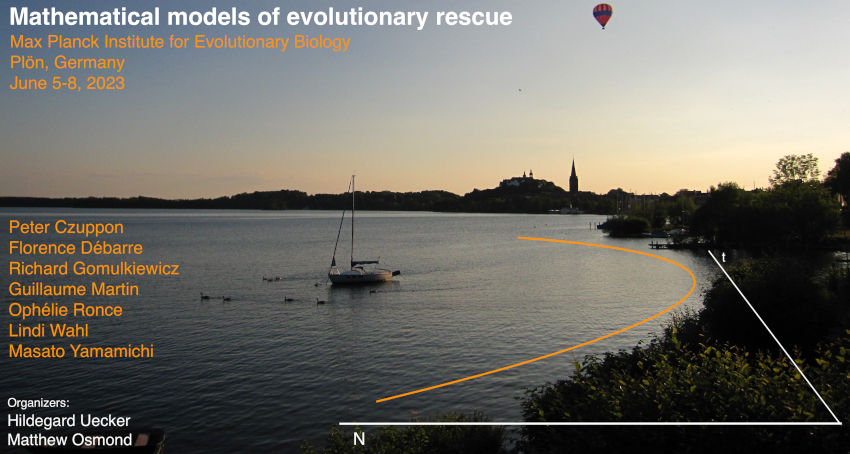Speaker
Description
Many ecologically important organisms (including perennial grasses that shape prairies and savannahs, reef-building corals, and many invasive and pathogenic species) have life histories that include stage structure and both sexual and asexual reproduction (partial clonality) Yet how partial clonality affect a populations ability to respond by phenotypic evolution to rapid environmental change is understudied. Our work shows that the effects of clonal reproduction on mean phenotype can be partitioned into two portions: one that is phenotype-dependent and one that is genotype-dependent. This partitioning is governed by the association between the non-additive genetic plus random environmental component of phenotype of clonal offspring and parents. Utilizing both deterministic models and stochastic, individual-based models, we show that increasing clonality allows populations to more effectively utilize standing genotypic and phenotypic variation and persist after a sudden shift in phenotypic optimum due to environmental change. This benefit of increased clonality greatly depends on the nature of the environmental change: increasing the probability of evolutionary rescue after a single step change, while decreasing population persistence under continuous, linear change requiring de novo variation. Increased clonality also expands the opportunity for spatial adaptation, and can reduce or even eliminate cases where dispersal between different habitats causes habitat loss (migrational meltdown).

